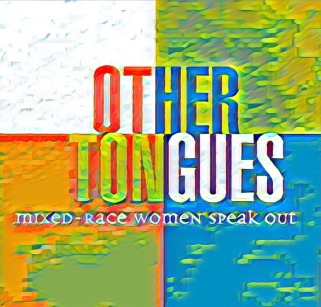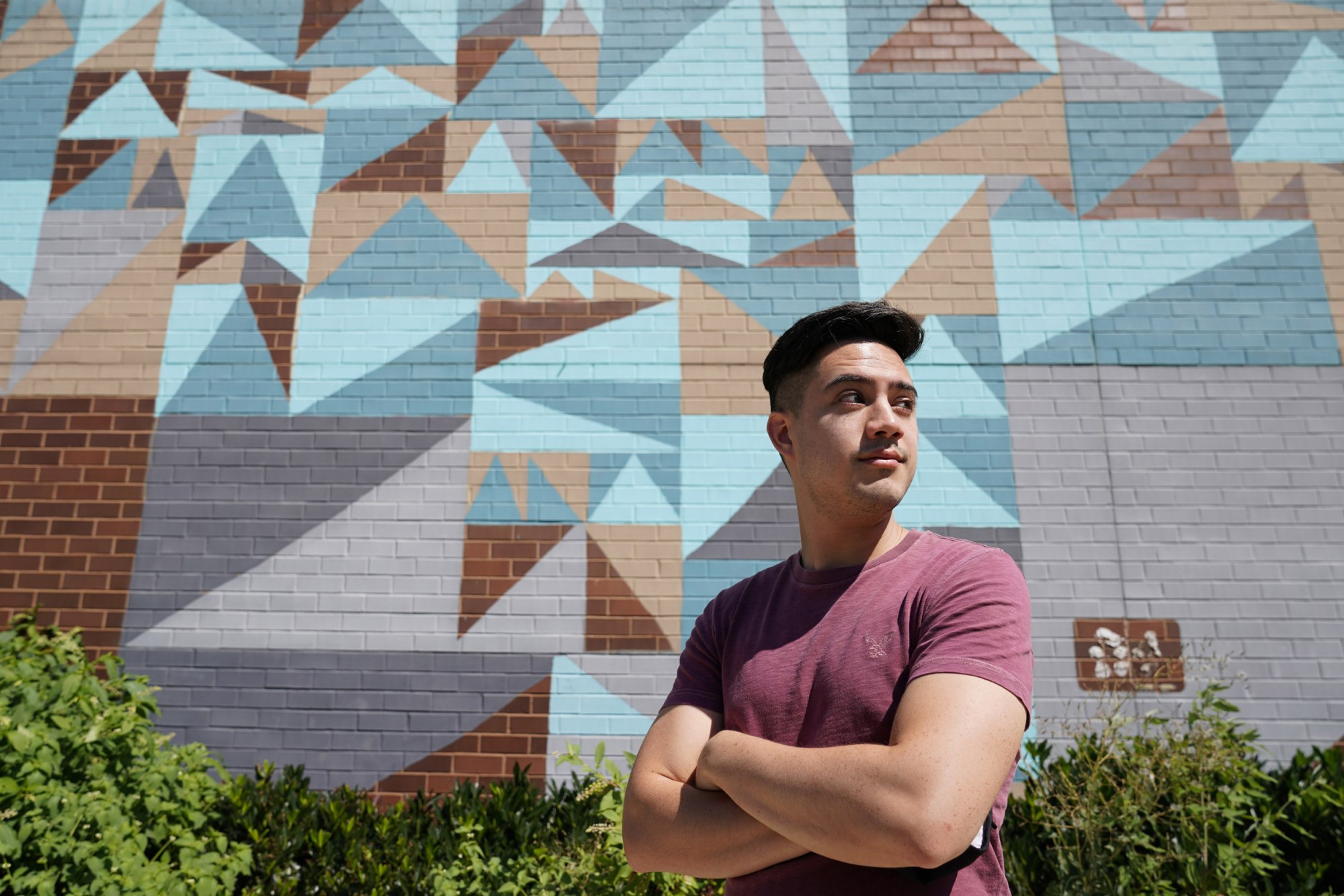Suddenly a Person of Color [Plötzlich Person of Color]
Die Zeit
Hamburg, Germany
2020-08-14
Von Fernanda Thome de Souza
Graciously translated from German into English for me by Gyavira Lasana and his wife Anne.

Ein Leben in Abhängigkeit von der Beurteilung der eigenen Hautfarbe: in Brasilien Subjekt, in Deutschland Objekt © . liane ./unsplash.com |
In Brazil, I was white and privileged, but in Germany I was not white enough. That told me a lot about racism and social participation.
Fernanda Thome de Souza, born in Sao Paulo, has lived in Berlin since 2008, working as a freelance writer, journalist and copywriter. She is a guest author of “10 to 8.” © private
In my first months in Berlin, when I was in the city, I was busy reading subway plans, translating social codes and discovering new landscapes. So I didn’t immediately notice that there was something particularly uncomfortable for me behind the differences and the new.
At some point, in the subway, in the supermarket, at work, I began to feel a disturbing look at my body, burdened with a reproach I had never experienced before. To this day, this gaze, which is determined in transmitting its message, accompanies me. He draws a clear line: that of the territory to which he belongs, where I am read as a stranger, the one that comes from outside.
My skin is dark, my eyebrows are thick, my hair is black and curled. Where I was born, in Brazil, I am white. A fact that is often difficult for Germans to understand. In Berlin I discovered myself as a Person of Color. This process did not happen overnight, but it definitely began with the perception of this depifting gaze.
While, as white people in Brazil, I have the legitimacy to occupy spaces – whether public, academic, professional, or cultural – as a matter of course, my presence here is called into question. While I live in Brazil the privilege of neutrality (I am the center, the “normal”, the subject), in Germany the equation has reversed. Because of my appearance, I was transformed into “the other”, an object of the edge, prone to the arbitrariness of the German white gaze.
I have been living with this ambiguity for twelve years. That, of course, changed me. Oscillating between different sides of social geographies, even from a safe place, has forced me to look beyond my horizons and question my own role. I have started to talk to other Brazilians living in a similar situation in Berlin. I wanted to know if it was just me. What is whiteness in Brazil? Why do we in Germany stop being white? How can the complex backgrounds be described? What have we learned and how has it changed our self-image and our relationship with the society to which we belong?
Legacy of European Colonialism
Brazil is an extremely racist country – a legacy of centuries-old European colonialism. After the abolition of slavery, at the beginning of the 20th century, a group of Brazilian intellectuals was first engaged in formulating the self-image of the young Republic of Brazil. Based on ethnic mixing, the theory of a supposed harmony between the different groups was developed.
Notwithstanding the fact that this ethnic mix-up was caused by the rape of black and indigenous women by white men, the idea served as evidence that there was no racism in Brazil and that in this tropical paradise, everyone, regardless of color or origin, would have equal opportunities. The notorious myth of so-called racial democracy was thus born and disseminated. For decades, racism has been kept out of debate and public policy, and has increasingly become established in all areas of social structure.
Today, the statistics show the brutal ethnic inequality in the country. While the indigenous population has been almost wiped out and now accounts for only 0.4 percent of total society, blacks – just over half of the total population – are systematically oppressed. Seventy-five percent of those killed by the police, 64 percent of the prison inmates and 75 percent of the poorest are black. Every 23 minutes, a young black man is killed in Brazil. Their biographies and struggles are not in the history books, and their religions are still subject to constant persecution.
“Whiteness” in Brazil
Germans, Italians, Jews, Syrians, Lebanese, Japanese and all the other groups that were part of the various waves of migration that have arrived in Brazil since the 19th century were accepted and treated as free people. This immediately gave them advantages and privileges. While the newly liberated black population was let down by the system, immigrants were given subsidized travel tickets and a job guarantee. Europeans were often given additional land for the establishment of colonies, driven by an effort to “wash” the Brazilian population whiter. In Brazil, color is inextricably linked to the class.
“Being white in Brazil means not suffering from racism,” says Berlin-based writer Fred Di Giacomo Rocha. It is said that they are not constantly being watched in the supermarket, that they are not afraid of the police and that they have access to lawyers. It is the knowledge that one’s own rights are respected by the institutions.
The choreographer and stage artist Rodrigo Garcia Alves explains the inequality in the state of schools. “Sending your own children to the best private school in the city is a mark of being white. These are only white environments. Because Brazil is not only a racist country, but also a classicist country.” In fact, enough teachers, hot meals, and school safety are a right reserved for whites, who are already entering the brutal competition for the best university places with a head start. In this context, privilege softens with reward for achievement – social inequality is entrenched.
In the 21st century, being white in Brazil still means coming through the front door and having domestic workers, who are mostly black and underpaid. “It’s impossible not to talk about who is serving and who is being served,” says school social worker D. Wiltshire Soares. “These relationships, which on the one hand are very emotional, on the other hand are also full of violence,” adds Lia Ishida, a Doctoral student in German studies. “It’s about integrating these people into the family without making them equal. A situation very similar to slavery.”
Fall into the European colonial fantasy
We white Brazilians come to Germany with European passports, higher education, fluent English, university places, money in our pockets and all the security, self-respect and arrogance that has been granted to us throughout our lives through historical privileges. Our bodies do not carry the traumas of racism. And yet we have definitely lost the “white status” we were used to here. And what does that mean?
As the Portuguese interdisciplinary artist and author Grada Kilomba put it in her book Plantation Memories, although there are Germans of all skin colors, the colonial fantasy prevails that being German means being white. It is a racism in which prejudice and discrimination arise not from an idea of the superiority of individual “races”, but on the basis of ideas of nation, ethnicity and cultural differences, incompatibilities and hierarchies.
What racism does to all of us
Since being German in the hegemonic imagination means first of all being white, I am automatically marked as someone who does not belong here.
This is the first “transition” of a Brazilian who ceases to be white: the loss of neutrality and the position of the subject. We will immediately become objects that are observed and questioned. Kilomba explains this by referring in her text to the Afro-German experience. While the white subject is preoccupied with the question “What do I see?”, the subject of color is forced to deal with the question “What do they see?” And what they see is not born of a mere interest in the story we have to tell, but from the projection of white fantasies about what we should be.
The experiences of the Brazilians I have spoken to coincide with mine. Deprived of our human complexity, we are reduced to stereotypes that in no way reflect our identity. If you read a Brazilian with a beard as a “terrorist Arab,” he becomes a “harmless Iberian” without a beard. The clothes we wear tell us whether we are read as Syrians or Italians, which means being considered suspicious or not.
Subordination and condescension
Because of this colonial dialectic, as Grada Kilomba defines it, the white subject deserves a position of authority, while the racist is forced to subordination. This hierarchy in relations is repeated from one area to another and represents a loss of status for Brazilians, who until then saw themselves as whites. Actually accustomed to hegemony, our mobility is suddenly monitored, our environment is reduced, our habits and behaviors are questioned and corrected, and finally our experiences and points of view are simplified and disqualified.
When Di Giacomo Rocha presented his latest book at the Frankfurt Book Fair in 2019, he criticized the German condescension. The universal voice is a white domain. In his opinion, Latin American literature only gains space when it talks about its regionality, its exotic peripheral reality.
Theories like Kilomba’s have helped me not only to process my experiences in Germany, but above all to understand the extent of my privileges, their structures and the origins of violence. There is an urgent need to break with the white idea of universality. The systematic small-termization of marginal voices is not only used to secure the status quo. It allows the privileged classes to be ignorant of realities of which they prefer not to know. If there is a moral and legitimate obligation to combat racism, there is an urgent need for stolen spaces to be returned to their actual owners. It is necessary to read these voices, to listen to them and to get to know them. Until we irrevocably understand what racism does to us as a society and as a human being.
Read the article in German here.









